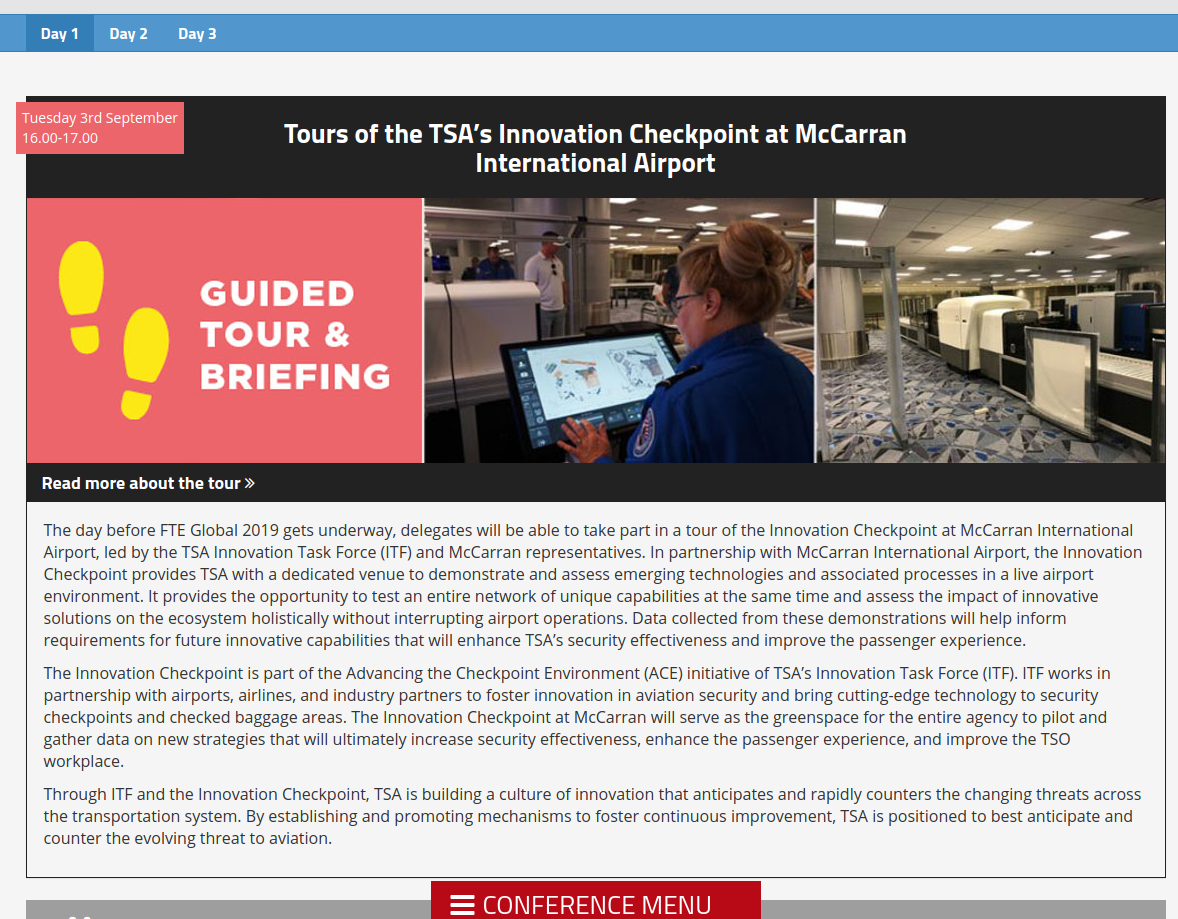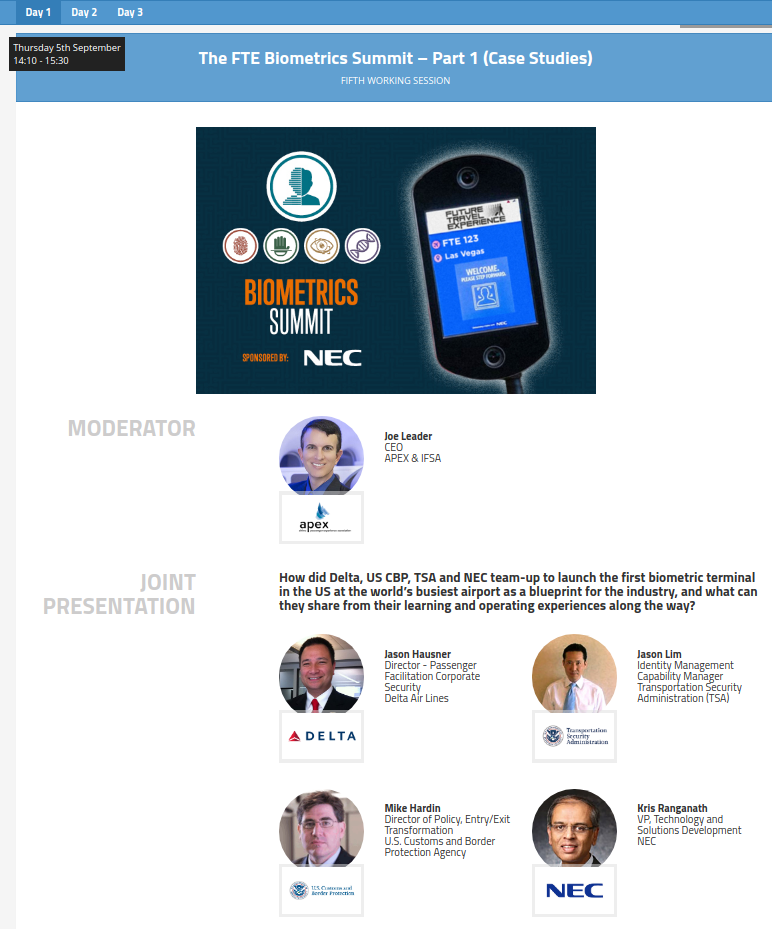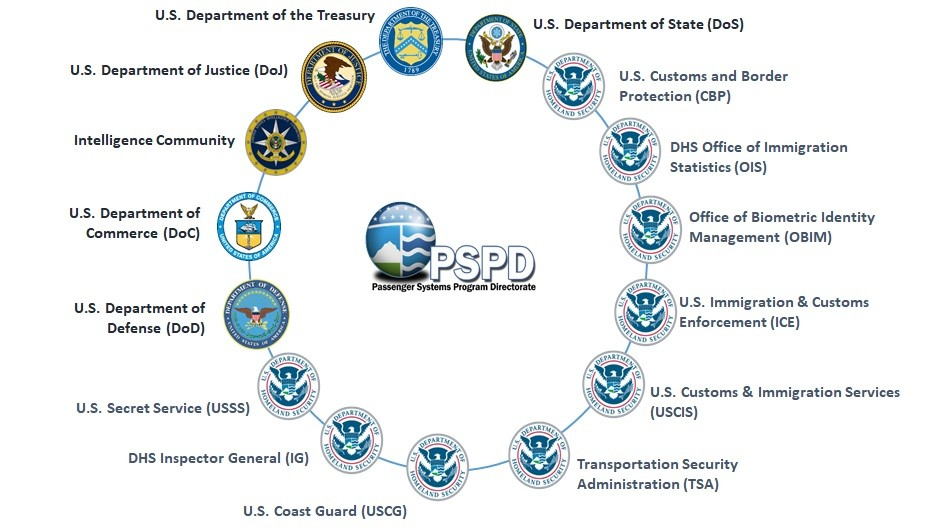
In preparation for the annual Future Travel Experience – Global conference next month in Las Vegas, which will include tours of the TSA’s prototype biometric checkpoint and a “Biometrics Summit” featuring joint presentations by the TSA, CBP, and their partners, both the DHS and its airline, airport, and industry partners (Part 1, Part 2) have released new previews of their plans for collaboration in surveillance and control of air travel through automated facial recognition.
As we’ve noted before, one of the more significant lies being told by the US Department of Homeland Security about its plans for increased surveillance and tracking of travelers is that airlines and airport operators have no commercial interest in retaining or using facial images and other biometric data collected on behalf of DHS components including the TSA and CBP.
In reality, airlines and airport operators are eager to share facial recognition insfrastructure (cameras, kiosks, etc.) and data with the DHS. Airlines, airports, and the DHS all see this collaboration as fundamental to their plans to transform the airline and airport passenger “processing” experience through a panopticon of shared-use biometric ID systems.

According to a two-part post in the Future Travel Experience conference blog (Part 1, Part 2), “Biometric technology is expected to play a key role in shaping the seamless passenger experience of the future.”
One of the briefings at the FTE Global 2019 Biometric Summit will be given by CBP’s “Director of Entry/Exit Transformation”, who described his mission as “developing U.S. biometric entry/exit system through private sector partnerships”.


Some of the airline and airport executives quoted in the FTE blog post have begun to argue that airline passengers should be allowed to opt out of biometric identification. But there’s no mention of how that would work or how long those who opt out would be delayed.
The FTE blog post also notes that:
[A]s the use of biometrics is becoming more widespread and the technology is advancing quickly, there have been rising concerns around privacy and data security from a civil rights point of view. For instance, San Francisco became the first US city to ban facial recognition technology as part of an anti-surveillance ordinance, though the ban doesn’t affect federal agencies, such as San Francisco International Airport.
This claim that SFO is a Federal agency exempt from San Francisco legislation is wishful thinking on the part of proponents of biometric surveillance and control of air travelers. While SFO is located in unincorporated San Mateo County, the land and buildings are owned by the City and County of San Francisco and operated by an instrumentality of the City and County of SF. The San Francisco ordinance applies to all City and County departments, including SFO.
Most other major airports are, like SFO, operated by state, county, or municipal governments and/or by other public or publicly-chartered entities subject to state and local public records laws and accountable, at least in theory, to state and local elected officials. These entities could, and should, prohibit any use of automated facial recognition on their property or by their lessees or contractors. Only Federal agencies themselves could escape the jurisdiction of such conditions on use of airport property.
Contradicting the public claim that airlines and airports have no interest in using biometric data shared with CBP, the FTE blog says that, “CBP’s view is that we will see further expansion into other aspects of the travel continuum, such as bag drop, international boarding and improved arrival process.” And of course a CBP spokesperson also tells the FTE blog that, “This is not a surveillance programme .”
Meanwhile, the DHS has released a Privacy Impact Assessment for the Travel Document Checker Automation Using Facial Recognition to be tested and first deployed at LAS airport, with its unveiling to attendees of the FTE Global 2019 conference.
The PIA acknowledges, in a footnote, that, “For passengers who are unable to present verifying identity documentation, TSA offers an alternative identity verification process in which passengers answer knowledge-based questions.” But the PIA ignores the fact that this questioning is being conducted illegally, without the required OMB approval, in violation of the Paperwork Reduction Act and other statutes.
In late 2016, the TSA gave notice that it planned to request OMB approval for the form that air travelers without ID or with ID deemed unacceptable are asked to complete. But the TSA received numerous objections, including ours, in response to this notice, and has not yet submitted a request to OMB for approval of the form or the “knowledge-based” questioning of travelers (which is based on commercial data aggregated by the Accurint division of Lexis-Nexis).
The last time we tried to attend a government-industry lovefest like FTE Global, we were ordered to leave and our registration fee and, eventually, our travel expenses were refunded. We’d welcome reports from our readers, workers at the conference venue, or other whistleblowers or leakers as to what gets said at FTE Global 2019.




